2024 Health & Wellness in Belize: Transformations, Challenges, and the Road Ahead
As we wrap up 2024, News 5 is excited to bring you our digital Year in Review! This year, we're diving into the highlights and challenges of the past twelve months, all organized by themes. Join us as we look back at the stories that shaped our year…
It’s been a year defined by bold infrastructure projects, legislative reforms, leadership transitions, and challenges like the ongoing brain drain. From controversial decisions on land acquisitions to the development of new hospitals and life-saving technological advancements, Belize’s healthcare system underwent significant shifts that will have long-term implications for its citizens.
The Belmopan Tertiary Hospital Debate
One of the most hotly debated issues of 2024 was the government’s decision to purchase 15 acres of private land in Belmopan for BZD $6.9 million to build a tertiary hospital. This decision sparked protests led by grassroots activist Nigel Petillo, supported by the Belize National Teachers’ Union (BNTU), the Public Service Union (PSU), and other civil society groups. The core grievance was that the University of Belize (UB) had offered land for free, yet the government opted to purchase private land adjacent to a sewer pond, raising public health and environmental concerns.
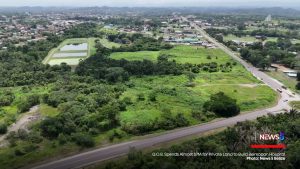
The Government of Belize defended its position, stating that a technical study concluded that the UB land was too remote and had insufficient infrastructure. Director of Hospital Services Dr. Jorge Polanco explained that access to the UB site was difficult, requiring the development of roads and utilities at a significant cost. On the other hand, the opposition, led by Moses “Shyne” Barrow, viewed the land purchase as a case of “glaring corruption” and threatened legal action.
In December, the government signed a BZ$3.2 million consultancy contract with Dar Al Omran International Engineering Consulting Company (DAO) for the design and supervision of a 150-bed Tertiary Care Teaching Hospital in Belmopan. Spanning 55 months, the consultancy covers design, construction supervision, and quality assurance for the hospital, a project funded by the Saudi Fund for Development and government contributions.
New Hospital for Belize City
Another significant announcement was the approval of a new tertiary-level hospital for Belize City, which will replace the ageing Karl Heusner Memorial Hospital (KHMH). Funded by the Central American Bank for Economic Integration (CABEI), the facility aims to improve healthcare access for residents in the Belize District and northern regions. The government’s decision to construct a new hospital instead of renovating the existing KHMH was based on studies indicating that renovation costs would exceed the cost of new construction. The government is yet to finalise the location, but options include the site of the old nursing school or land near the Eleanor Hall building.
San Pedro and Caye Caulker General Hospital
Ground was officially broken for the construction of the long-awaited San Pedro and Caye Caulker General Hospital. This $33 million BZD project, funded by the Government of Taiwan, will address the chronic issue of residents having to be airlifted to the mainland for emergency care. The project, which is expected to be completed within 36 months, is seen as a significant step toward improving healthcare equity in Belize’s island communities. Area Representative Andre Perez noted that the hospital’s establishment fulfils a long-standing promise to island residents who have faced health emergencies without timely access to care.
Technological Advancements and Equipment Upgrades
One of the most eagerly awaited advancements was the arrival of a new CT scanner. Delays in delivery had raised public concern, but by March 2024, the new equipment was installed and operational. Minister of Health and Wellness Kevin Bernard stressed the importance of the scanners, noting that they offer faster and more accurate diagnoses. The machine was installed at the K.H.M.H. It broke down after 8 months. The KHMHA later announced that the repair and full restoration of its CT scan machine, which had been out of service due to a hardware issue caused by condensation, was complete. During the downtime, arrangements were made with nearby facilities to ensure patient access to CT scans.
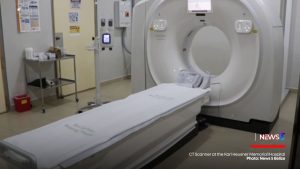
Through a collaboration between Edward and Patricia Lord of the Belizean diaspora and the Build Belize Initiative, the Ministry of Health received medical equipment valued at $1.8 million USD. The donation included birthing beds, defibrillators, patient monitors, and ICU beds. Health Minister Bernard emphasised that the equipment would be distributed to health facilities nationwide, enhancing emergency care and improving patient outcomes. Minister of Tourism and Diaspora Relations Anthony Mahler hailed the initiative as a testament to the power of diaspora contributions.
Legislative and Policy Reforms
Significant legislative reform came in the form of amendments to the Food and Drug Act. The overhaul introduced stricter regulations to prevent the entry of substandard pharmaceutical products. Chief Drug Inspector resignations raised concerns about the impact of these reforms, but Health Minister Bernard assured the public that oversight mechanisms were in place. The Ministry’s drug inspection unit stepped up enforcement, seizing contraband medications and ensuring quality control. The reform aligns with World Health Organisation (WHO) standards and strengthens consumer protection.
Another contentious reform was the proposed amendment to the KHMH Act, which would see the replacement of the Karl Heusner Memorial Hospital Workers’ Union (KHMHWU) representative on the hospital’s board with a member from the National Trade Union Congress of Belize (NTUCB). After intense pushback from the KHMHWU, the government allowed the union to nominate two candidates for the board. Minister Bernard justified the move as a way to broaden representation and avoid conflicts of interest.
The Fight Against Brain Drain

A chronic issue in 2024 was Belize’s healthcare worker shortage. The Karl Heusner Memorial Hospital reported a loss of 50 nurses and doctors due to better-paying opportunities abroad. Nurses Association President Renita Pop revealed that over 100 nurses had left the country since 2021. The government’s strategy to address the crisis included offering scholarships for specialities like midwifery and public health nursing. Despite these efforts, the shortage persisted, resulting in increased workloads for remaining staff.
Personal Tragedies and Losses
Belize’s healthcare community was shaken by the untimely passing of Dr. Fernando Cuellar, a prominent figure in the medical field. Diagnosed with blood cancer, Dr. Cuellar’s battle was tragically brief, leaving a void in public healthcare advocacy. His legacy of compassionate care and fearless truth-telling lives on in the hearts of colleagues and patients alike.
The nation’s collective heart also went out to paediatrician Dr. Cecilio Eck, who revealed he had been diagnosed with stage-four cancer. Belizeans rallied to support him, raising funds for his treatment in the United States. Dr. Eck’s journey underscored the broader need for access to advanced cancer care and diagnostic services within Belize.
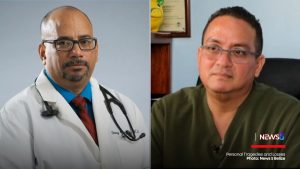





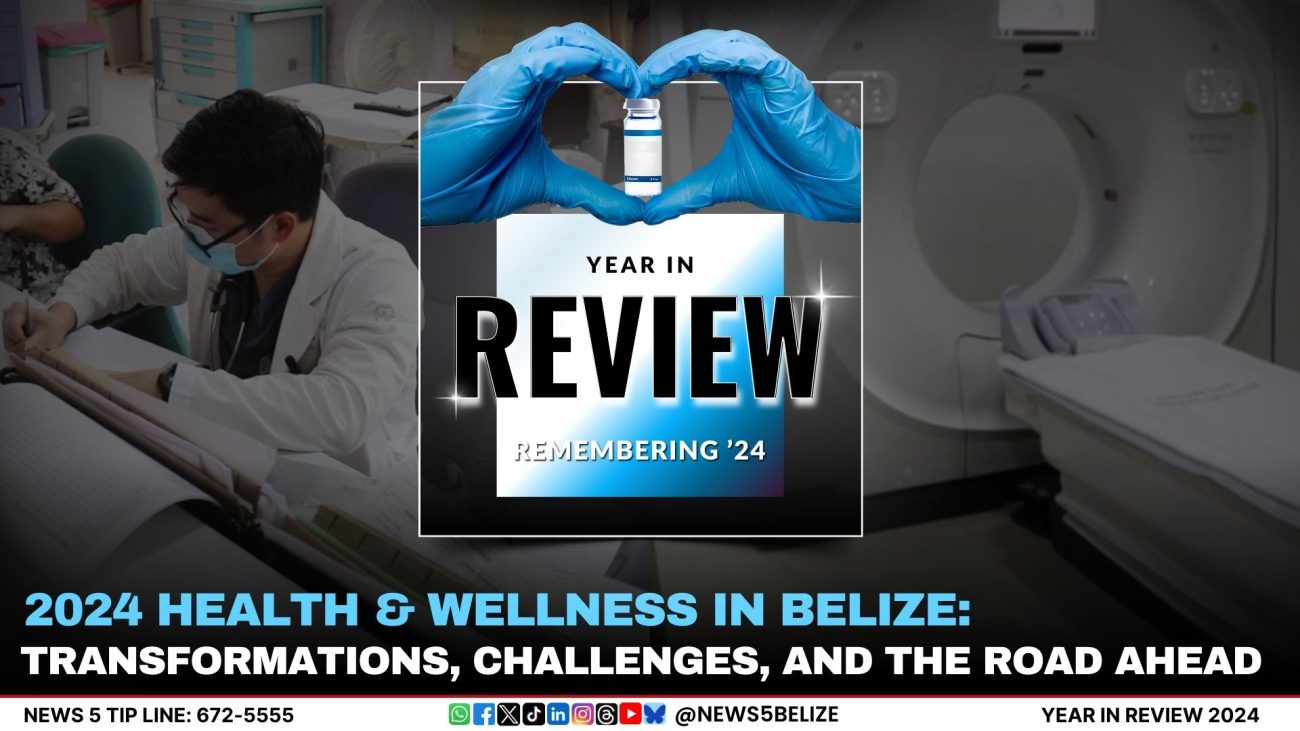

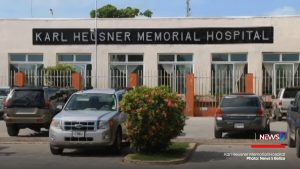
Facebook Comments